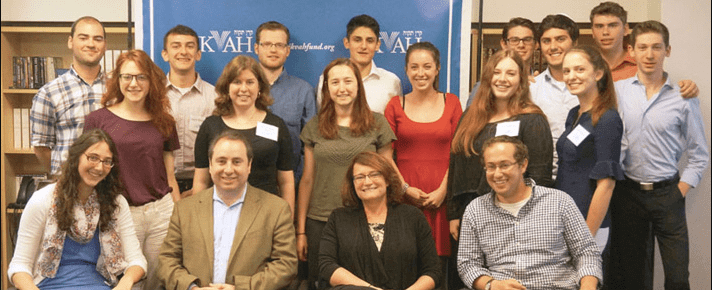Original Post Published at The Jerusalem Post
Israeli beaten in five sets by Cuevas; Djokovic, Nadal overcome wrist injuries to advance.
Dudi Sela was knocked out in the first round of a Grand Slam event for the fifth time in the past six tournaments on Monday, losing a five-set thriller to No. 18 seed Pablo Cuevas in the US Open in New York.
The 31-year-old Israeli, ranked No. 80 in the world, battled back from two sets down to force a decider, but required treatment on his right hand at the start of the fifth set and was beaten 6-3, 6-2, 0-6, 5-7, 6-3 after three hours and two minutes.
“I started off playing really bad, I was tight. Then in the third set, I broke him and held and I played a little better and more aggressive and took charge of the match from that point,” Sela told The Jerusalem Post. “I then had cramping in my fingers and had a hard time holding the racket when serving. I also had cramping in my shoulder and then I made too many mistakes.”
Sela, who will remain in Flushing Meadows to take part in the men’s doubles tournament with Frenchman Stephane Robert, was playing in his first event since the Rio Olympics.
“It was a great experience. It was very different from any other tournaments I have played in,” he said. “It was my first time in the Olympics. The Israel delegation was really professional and really good.”
Meanwhile, Novak Djokovic opened the defense of his US Open title with a 6-3, 5-7, 6-2, 6-1 win over Poland’s Jerzy Janowicz on Monday, but the labored performance gave rise to fresh concerns about the world number one’s fitness.
After a sizzling start to the season that brought grand slam wins No. 11 and 12 at the Australian and French Opens, Djokovic’s form has plummeted, with a third-round loss to Sam Querrey at Wimbledon followed by a first-round exit at the Rio Olympics.
The Serb might have been in trouble on another day at Flushing Meadows but Janowicz, ranked 246 places below Djokovic, has advanced from the first round just once in four previous US Open visits and looked unlikely to do it again on Monday.
Djokovic, a US Open finalist five of the last six years, next faces Czech Jiri Vesely.
Djokovic arrived in New York having been hampered by a left wrist injury and distracted by undisclosed “private matters” and on Monday trainers were called out early in the opening set to work on his right forearm.
Several times during the two hour, 37 minute match, Djokovic could be seen grimacing when hitting his powerful forehand, while his serve rarely looked threatening, stuck at around 100 mph.
“It was just prevention, it’s all good,” Djokovic told reporters.
“Look, each day presents us some kind of challenges that we need to accept and overcome.
“After all I’ve been through in the last couple of weeks it’s pleasing to finish the match and win it.”
The year’s final grand slam got off to a glitzy Hollywood-style start, with a performance from Phil Collins to mark the arrival of the $150 million retractable roof at the stadium.
Rafa Nadal was worn out from his Rio Olympics exertions after emerging from an injury absence to win doubles gold, but the Spaniard perked back up with his trip to New York for the US Open.
Nadal, who said his injured wrist is improving daily, beat Denis Istomin of Uzbekistan 6-1, 6-4, 6-2, in his firstround match on Monday.
“The most important thing is I’m here in New York and that makes me happy,” said Spain’s 14-times grand slam winner, who could not continue through the French Open and also missed Wimbledon and the Toronto event due to his wrist injury.




